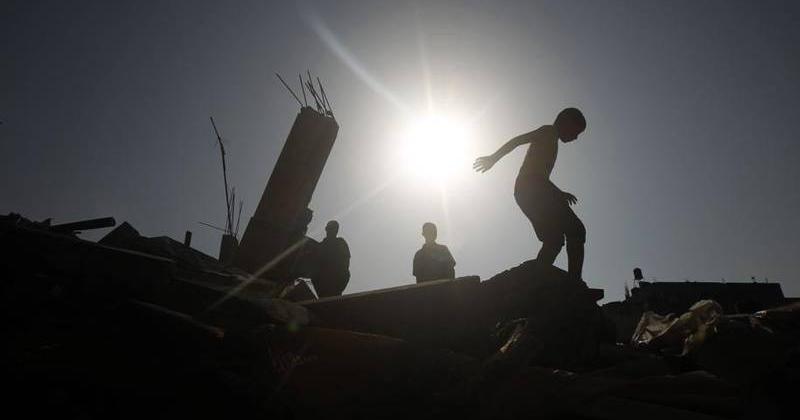“People also said John XXIII’s message to the Americans and Soviets during the Cuban Missile Crisis of 1962 was futile. But history proved otherwise.” Bishop Ambrogio Spreafico – who is President of the Italian Episcopal Conference’s Commission for Cooperation between Churches and of the “Missio” foundation, a spiritual assistant of the Community of Sant’Egidio and a member of the Congregation for the Causes of Saints – talks to Vatican Insider about the prospects and objectives that are pushing Vatican diplomacy to strive to help end to hostilities in Gaza through appeasement. And also to the international community’s attention to the tragic situation faced by Christians in Jesus’ homeland.
The Vatican Secretariat of State sent a “nota verbale” to embassies accredited to the Holy See, to remind them of the Pope’s recent appeals for the Middle East delivered during the last few Angelus prayers. What does the Vatican aim to achieve with this initiative?
“The conflict has now become highly complex, with many international players and difficult diplomatic initiatives such as Egypt’s attempted mediation. Pope Francis has sent out a number of appeals for prayers in light of the escalating violence in the Middle East and especially on the intensification of violence in the Gaza Strip. There is nothing futile in taking action to promote peace. Prayer does have an effect and we must not back away from our spiritual responsibility. Appeals inspired by faith and diplomacy are both useful as means of questioning the actions of parties at war and also as a means of getting the international community to take the issue to heart.”
Are religions doing little to promote peace?
“Religions could have done more. All one needs to do is step inside the Holy Sepulchre and witness the tiny spaces dividing them to realize how Christians are not setting a good example with their rivalries in this troubled part of the world. We cannot just stand by and watch as so many innocent people, women, children and elderly are massacred. Indifference fuels feelings of revenge and hatred. Children growing up in the Middle East, in this climate of head to head conflict, develops a sense of enmity, which will be difficult to erase from their souls later on in life.”
What possible solution would you suggest?
“Education needs to be the starting point. Peaceful coexistence will never be possible if Israeli and Palestinian children don’t start to learn to understand one another. No one has the right to give into anger, revenge or further violence. There is no justification for this. One cannot help but feel a sense of horror and indignation when they witness people dying like this. Repugnance is the only possible reaction. Change comes from within ourselves.”
What can Catholics do?
“Diplomacy alone cannot bring change. Change must come from within our own consciences. Intolerance is also spreading in our part of the world. Alarming cases of hatred and closed-mindedness are also witnessed in our cities, which are miles away from the Middle Eastern scenes of conflict. They are a consequence of a culture of contempt that has spread in recent years: contempt toward foreigners and Roma people especially, but also generally towards others, particularly the vulnerable. There is widespread violence in our own societies as well: violent feelings, words and attitudes, which manifest themselves in continuous fighting, in anger, in a lack of respect and in people’s aggressive reactions the minute someone so much as touches them or hurts them. Blind rivalry is destructive and sterile and undermines the very foundations of a community.
What is the danger? A climate of widespread hostility?
“The danger right now, in this difficult time, is the false belief that a scapegoat will solve things: we can only save ourselves together. Racism and intolerance are sicknesses which distort the image of a community, making it more ugly and less livable for everyone. Intolerance casts our minds back to dark moments in history that bring nothing but pain and destruction. A new culture of dialogue is needed, not one of contempt. Most importantly, verbal violence needs to stop: too often in recent years, words have contributed to that culture of rejection which has led to the contaminated and oppressive climate that currently surround us.”
